Library Graphic Novel Haul (quick reviews)
I review four graphic novels, ranging from memoir to historical feminism to dystopian fiction.
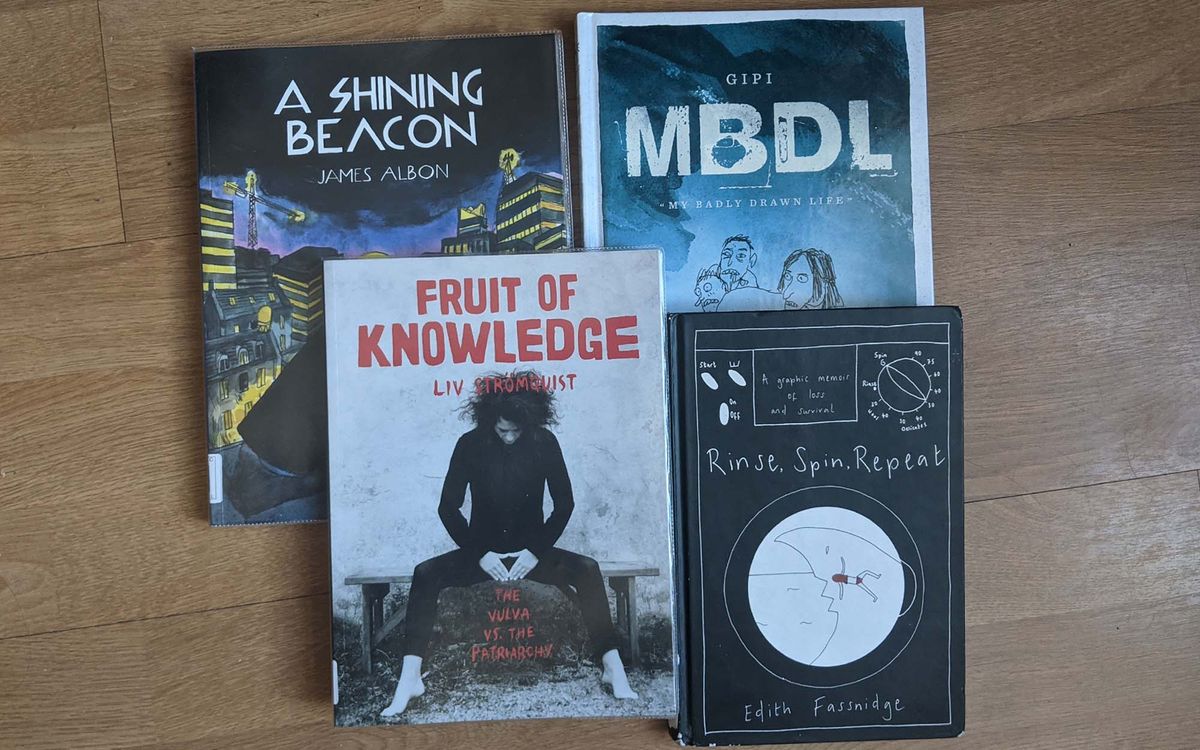
Libraries in Edinburgh opened again last month, and I went to check out the graphic novel/comics section in my local branch. I was very pleasantly surprised by the huge selection I found! I thought I'd give my thoughts on the four very different books I picked up on my first trip.
I also am excited to inform you that the website I'm hosting this blog on just added comments functionality, which I've swiftly turned on. You can now comment on all posts, under your real name or an alias, it's up to you - you'll be prompted to choose a name when you first type a comment. Only subscribers can comment, which should prevent spam, and hopefully it'll be a way for us to communicate a little bit. For the last couple of months as I've typed up these posts and sent them into the ether I've not been able to receive any responses - very liberating, in a way.
But I do want to make sure that I take your opinions into account, should you have any. For example, I have no idea if you, the readers, are interested in me sharing my thoughts about books I've read. I've been reading a lot of graphic novels this year and would certainly be up for doing some more reviews. So, do let me know your thoughts, or perhaps graphic novels you've enjoyed recently, or if there's anything else you'd be interested to see me write!
For now, let's get to today's post.
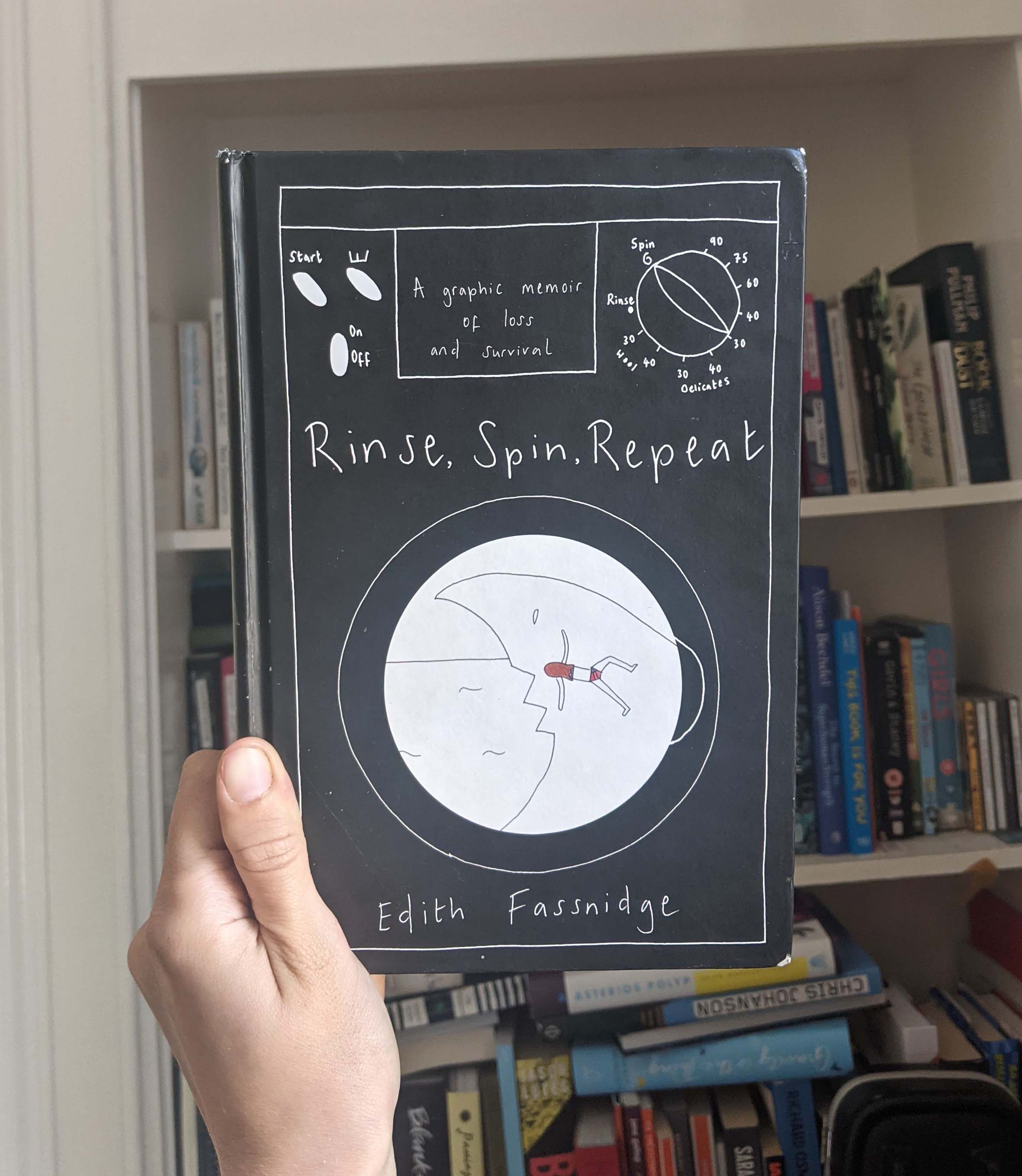
Rinse, Spin, Repeat by Edith Fassnidge
My favourite of this haul. This is a memoir written by a survivor of the 2004 Indian Ocean tsunami - it's definitely not light reading, even if the stick-figure drawing style (see picture below) might suggest otherwise. I soon found myself completely engrossed in the story. It is told extremely well - I thought the tone strikes a great balance of being a straightforward account of events, but with so much feeling.
I took a personal interest as I have visited the area of Thailand that this takes place in - many years after the tsunami, of course. Taking a look at the scribbly map on the page and realising I'd stood in the same spot myself really brought the story to life in my head. And it also put things into perspective for me - gave me one of those pauses in which I reflected on how lucky I've been in my life, and on how there is no fairness or warning when life throws a tragedy your way.
I came away with a lot of respect for the author and her family, because to not only survive something like this but to make it into a publicly available narrative takes big guts, I have no doubt.
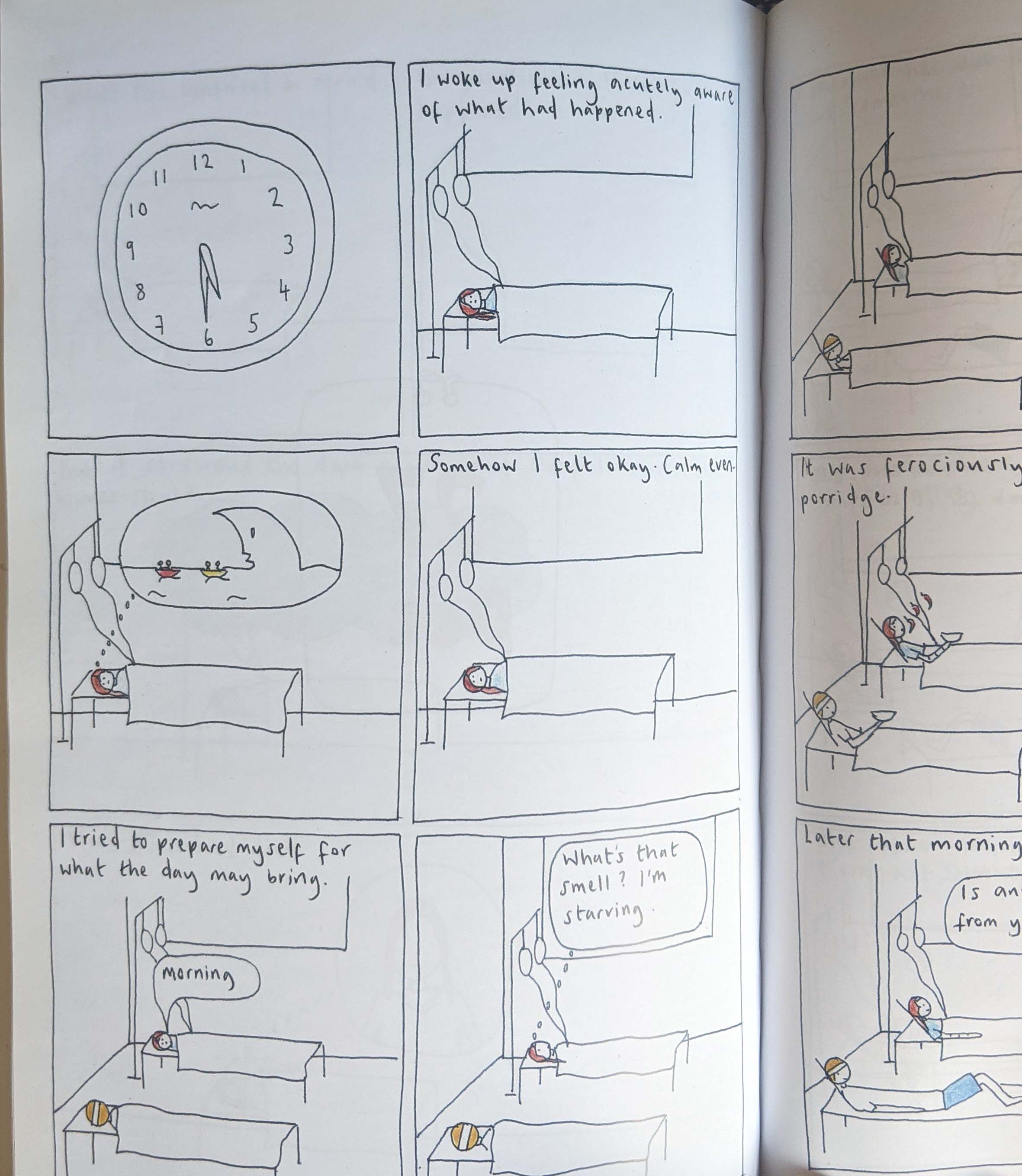
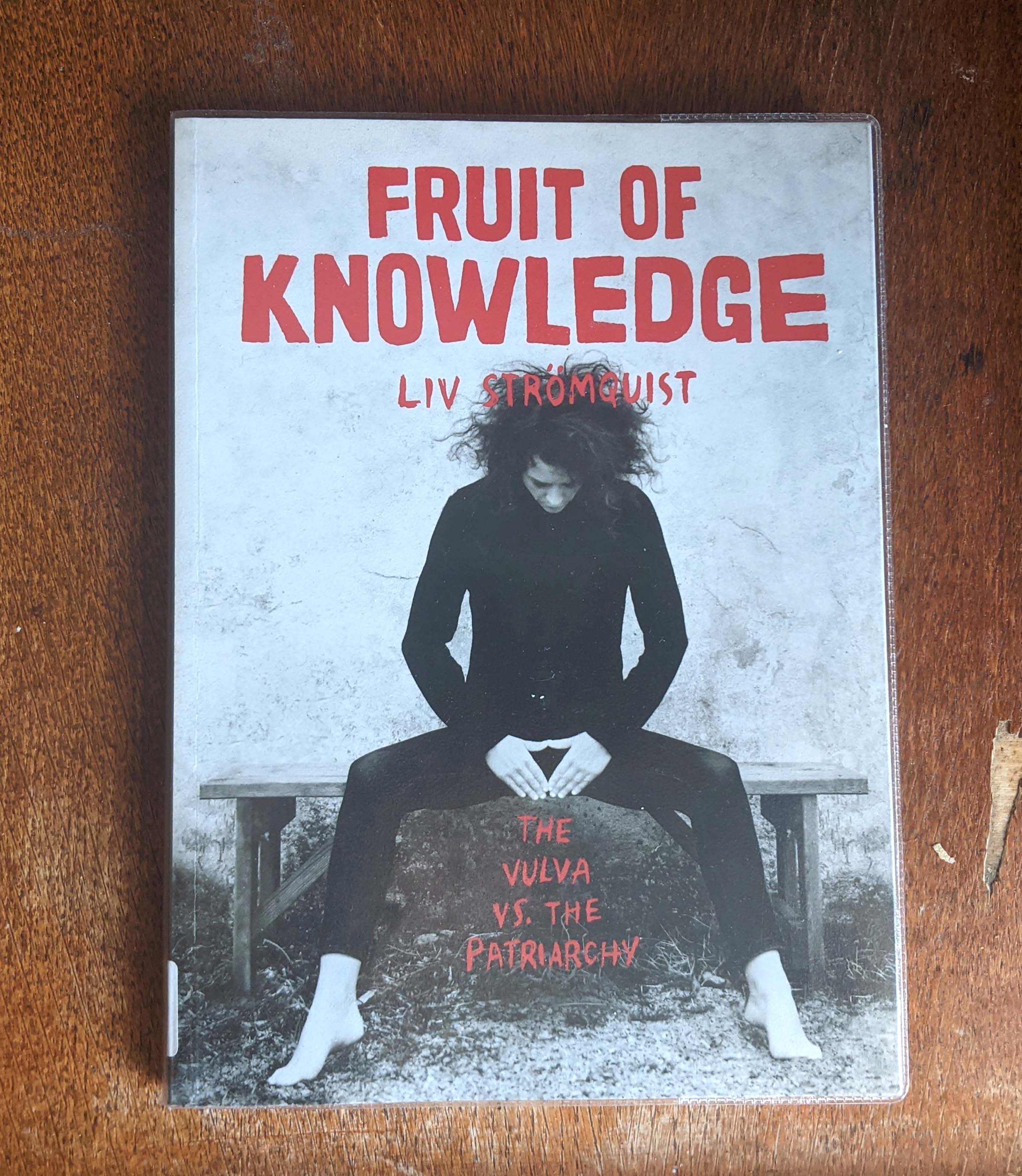
Fruit of Knowledge by Liv Strömquist
I was already familiar with Strömquist's work, as I'd been gifted a copy of one of her other books earlier this year (said book doesn't seem to be available in English - she is a Swedish author - and I received a German copy, "Ich fühl's nicht"). Anyway, I'd been on the lookout for more of her work as I'd quite enjoyed her sociopolitical, informative-yet-accessible style.
As you can probably tell from the cover photo, this book is about pretty much one thing: the vulva. It's essentially a brief history and analysis of the ways that human culture(s) have felt about it (spoiler alert, it ranges from let's worship the vulva to the vulva is disgusting). I really enjoyed the historical facts, which are illustrated well, and I personally enjoyed the slightly snarky tone she takes as a narrator (see her sassy overuse of the exclamation point below). I did notice that the book felt a bit disjointed, like it was a collection of several essays, rather than a coherent whole, but as it is a non-fiction book this can be forgiven.
Overall I enjoyed this book slightly less than I'd expected to, which isn't to say that it's not a good book, but perhaps just that it wasn't as groundbreaking for me as some of the reviews suggested it might be (e.g. criticising society for viewing sex through a heterosexual, patriarchal lense was not a shocking twist for me, but I suppose I'm a biased lesbian?). The book passionately makes the point that no one should feel uncomfortable or ashamed of their body, which is a great message. This could be a good recommendation for teenagers.
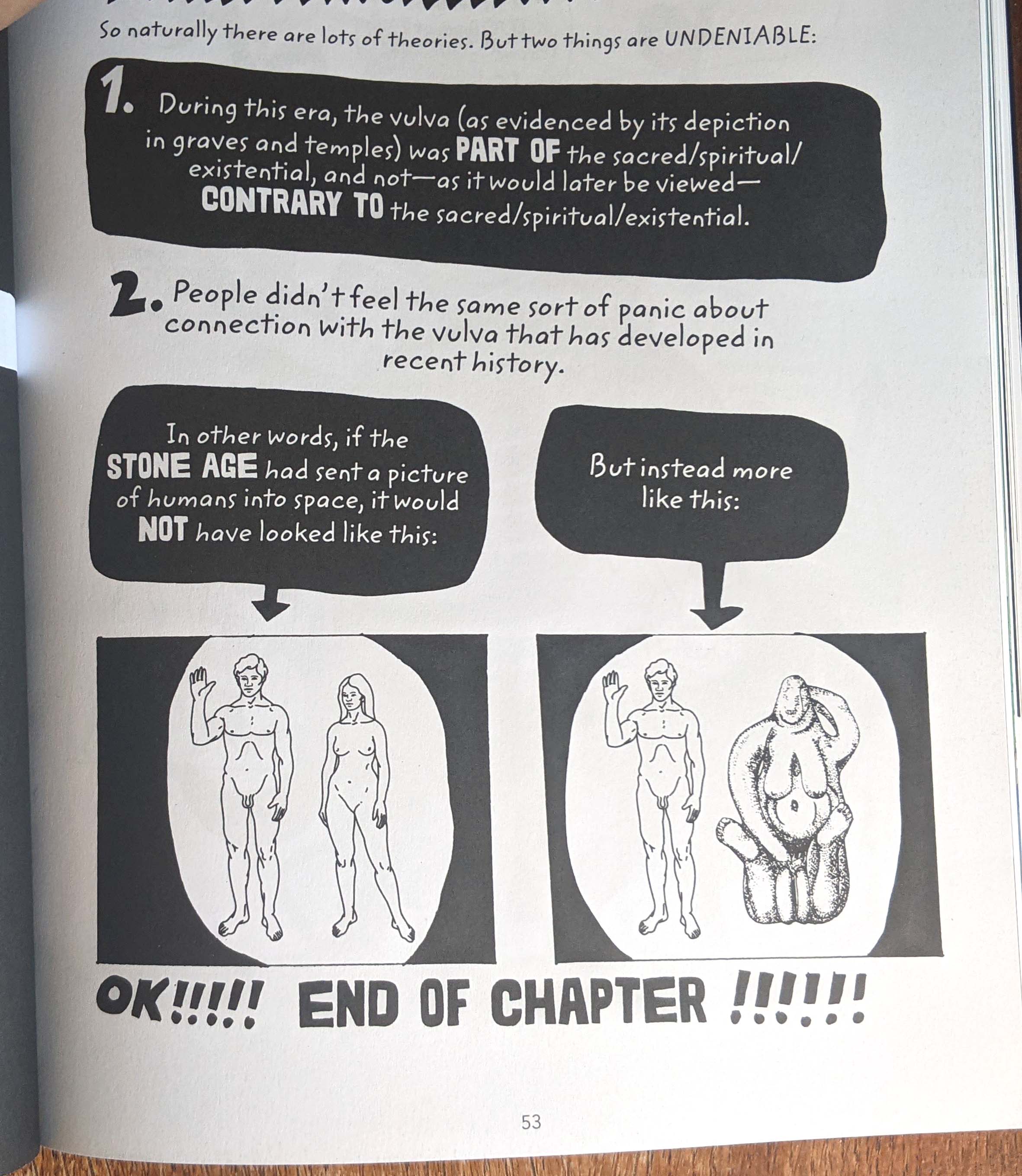
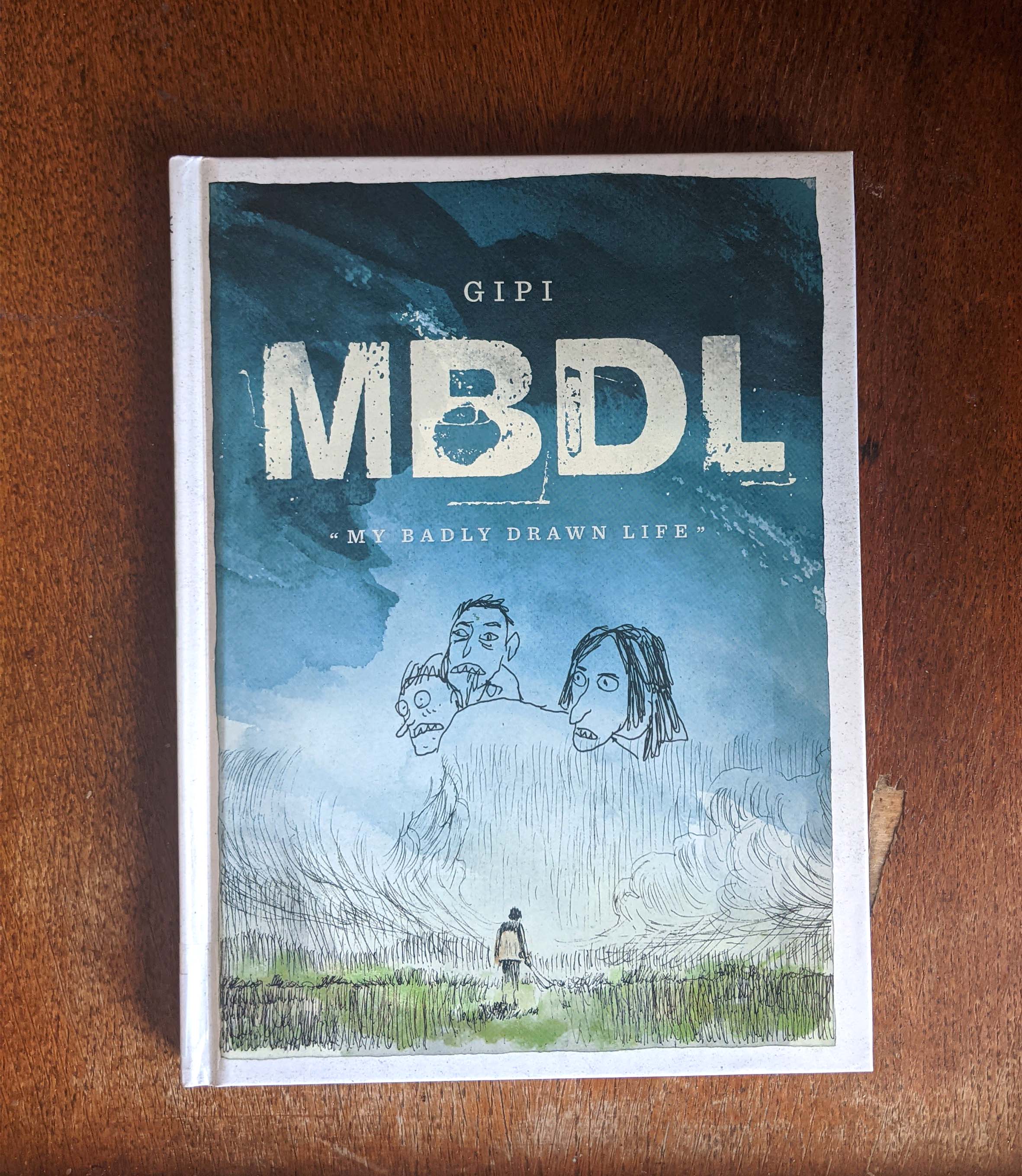
My Badly Drawn Life by Gipi
This book was first published in 2008 in Italian, and was translated into English in 2022. It feels exciting to gain access to something that you weren't previously able to read - I hadn't ever heard of Italian cartoonist Gipi (Gianni Pacinotti) before, so this shows how translating foreign books efficiently expands the literary horizon!
The style of the book is approximately an autobiographical sketchbook/journal that re-tells moments of the author's life, with fictional/fantastical/drug-fuelled sequences sprinkled in. The author uses this format comfortably and confidently - panel-less, chapterless - the drawings seem effortless and quick, yet precise and beautiful at times. There is an elasticity and movement to everything. The quality of the drawings was my favourite thing about this book, it's immediately obvious that this is an artist at the top of his game.
However, this book didn't really ever completely suck me in - maybe that's because there isn't a straightforward narrative to get lost in, just moments, like the pot of pasta on the page pictured below. I'm also keenly aware that I'm probably not the target audience here - if I were to summarise the book in one word, I would say masculinity. It is a man telling us about what it was like to be a teenaged boy and do stuff with other teenaged boys. This is often beyond my comprehension; I would go so far as to say that I felt uncomfortable with some things in this book. But that's okay, I still enjoyed looking at the drawing of the pot of pasta.
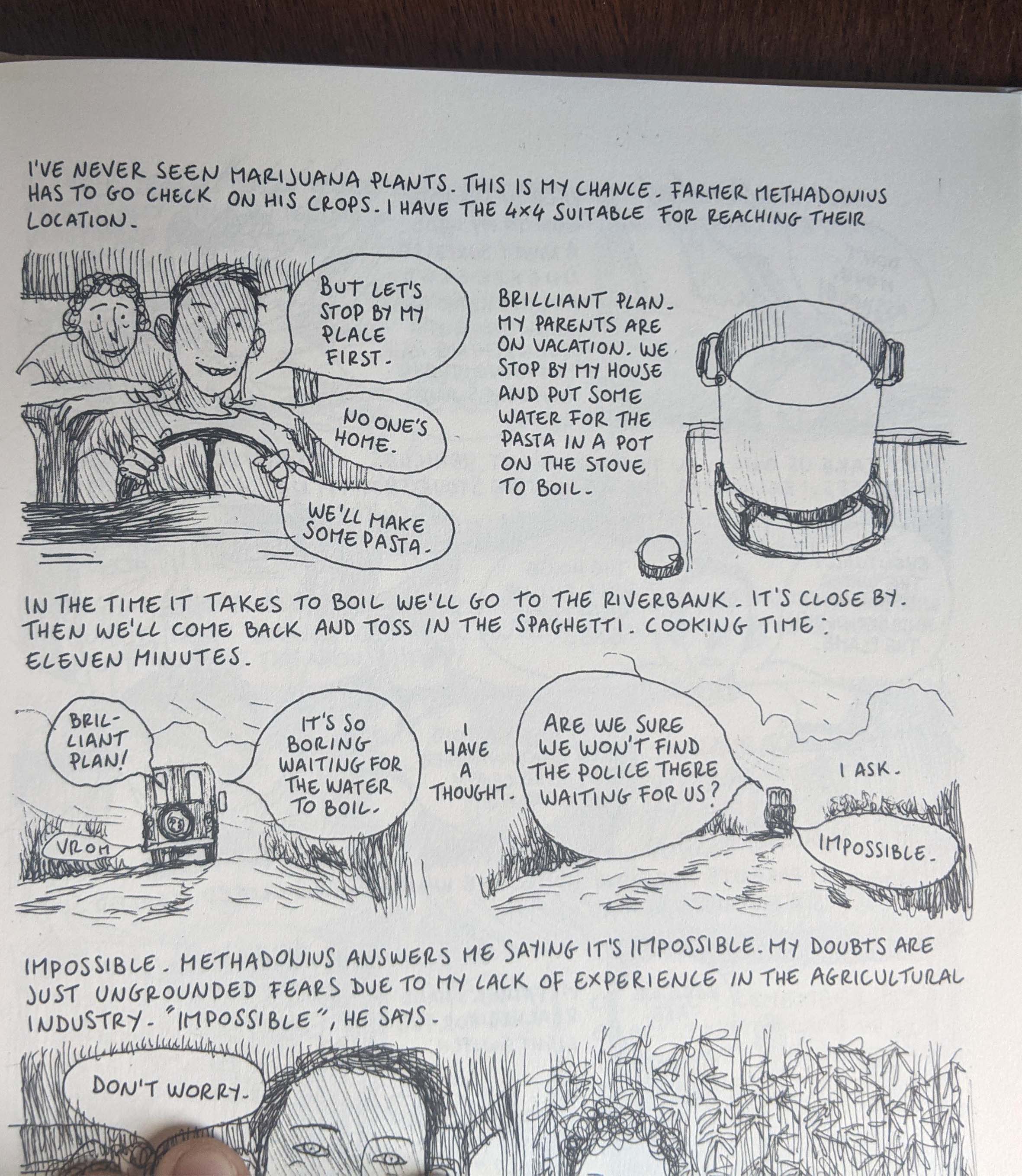
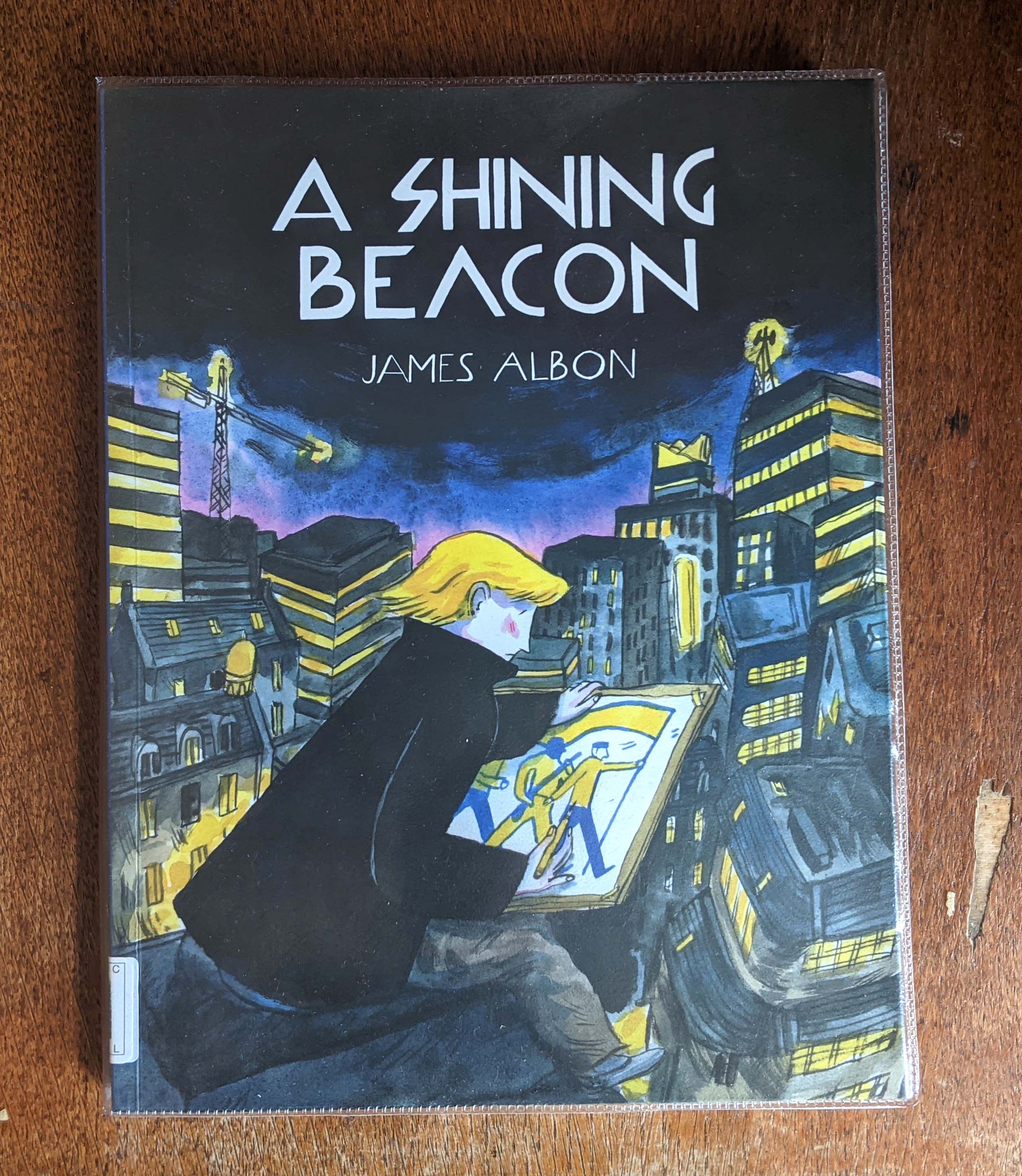
A Shining Beacon by James Albon
Last but not least, a local one (I somewhat suspect that Edinburgh Library made sure to stock this because James Albon is an ECA graduate). Although I'd not read any of his books before, I'd seen his work as an Illustrator, so I knew what to expect in terms of the art - elaborate, colourful watercolours! - but was curious about the writing. Compared to the other books I've reviewed here today, this is by far the most traditional one - it's a fictional narrative with a beginning, a middle and an end, and we follow a likeable protagonist with a clear objective.
Protagonist is an artist in an authoritarian regime, has to contend with censorship laws, gets caught up in big events, chaos ensues - does that sound like a lot for a 200 page graphic novel? It's an impressive plot to resolve in a drawn book, and I'd say it is pulled off pretty decently, although I personally couldn't help but draw (hehe) comparisons to books that deal with similar topics with more depth. The Telling and The Dispossessed by Ursula K. Le Guin come to mind, both of which describe political oppression so affectingly that their respective worlds have stuck with me for years. Okay, perhaps it's unfair to compare books with many, many words to a graphic novel - so maybe I should just say that the format has obvious limits.
That said, it's impressive how much plot is nestled inside what can only be described as hundreds of detailed paintings. I've never seen a comic drawn like this before, and probably for a reason! As somebody who draws comics in black pen on paper, the mere idea of making a book like this makes me feel slightly sick - how much work must have gone into this. The fluent, sketchy drawings occasionally culminate in downright glorious pages. I can honestly say that this book was worth reading for the way the swimming pool is drawn alone (see picture below). So, it's probably the lovely renditions of water that will stick with me rather than the dystopian plot - but the book is worth checking out if you have an interest in either.
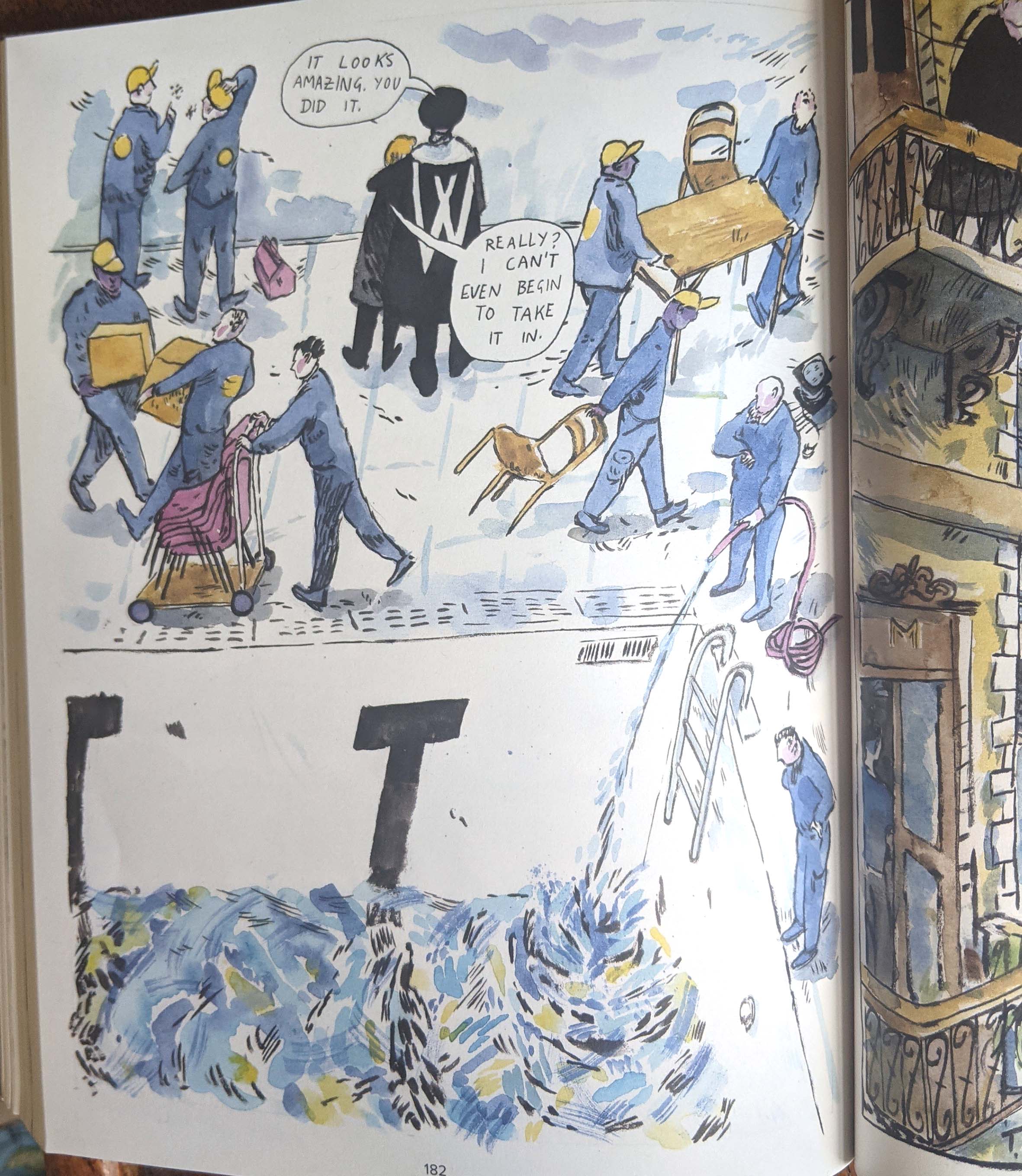

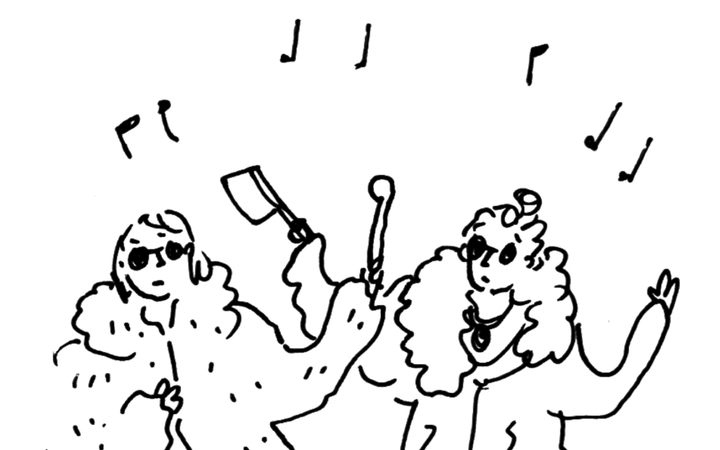
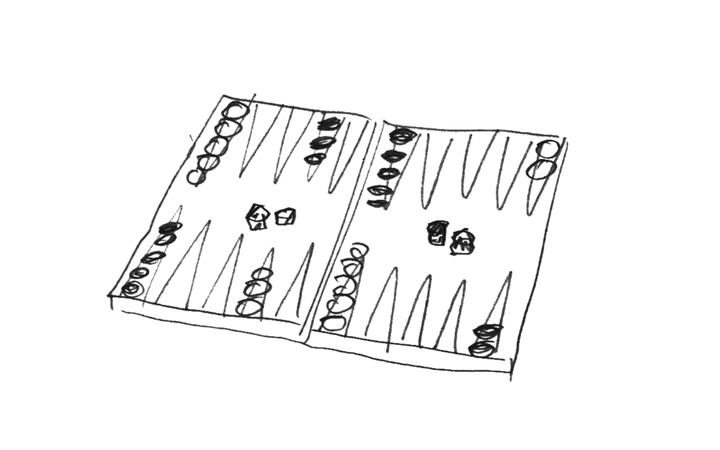
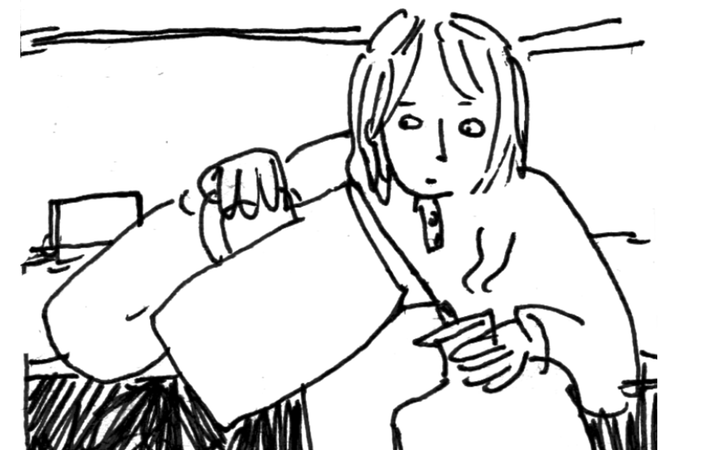
Comments ()